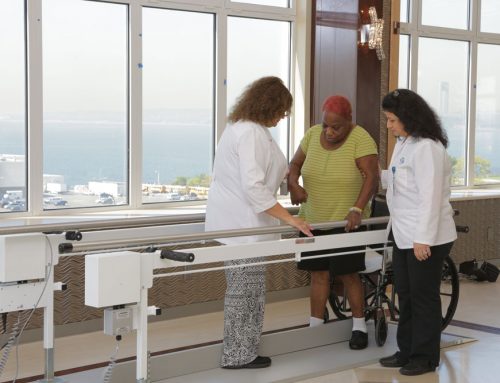Your coronary arteries have a very important job to do. They are in charge of carrying blood to, and from, your heart to the rest of your body. Narrowed arteries mean that their ability to do this job is compromised.
Why arteries get narrowed?
Narrowed coronary arteries can be the result of something called atherosclerosis. This is a build-up (clogging) of cholesterol and/or fat deposits. These deposits are called plaque. If the clogging advances too much, decreased blood flow to the heart and coronary artery disease are the result.
Arteries may also become narrowed because of high blood pressure. If your blood pressure is at dangerously high levels, arterial muscles compensate by growing thicker. This then makes it harder for blood to flow in and out of the heart. As a result, your blood pressure will spike even further. This vicious cycle must be slowed and treated accordingly.

Narrowed arteries can be dangerous
If an artery is completely blocked, that artery is unable to provide blood (and essential oxygen) to the part of the body it is in charge of. Without oxygen, cell death in the affected area is likely to occur.
Narrowed arteries are responsible for several conditions including:
- Coronary artery disease
- Angina (chronic and/or severe chest pain)
- Changes to blood pressure
- Hypoxia (too little oxygen in a given tissue region)
- Tissue death
Narrowed arteries may also lead to a blocked or burst artery. The latter is a serious medical emergency. If the burst artery was supplying blood to the brain, a stroke results. If the burst artery was supplying blood to a section of the heart, a heart attack occurs.
Muscles and tissues require oxygen for continued survival. When a coronary (heart) artery is compromised, the heart cannot adequately deliver blood—and therefore oxygen—to a given region of the body.
Blocked arteries are arteries that have gone from narrowed to completely blocked. A completely blocked artery is one in which the build-up of plaque has effectively closed the blood’s passage. A heart attack generally results.
Symptoms of a blocked artery
Unfortunately, we cannot always tell when we have a partially blocked artery. In fact, most people do not develop any symptoms until the artery is around 70 percent clogged or closed.
The symptoms of blocked or narrowed arteries are the same as those for coronary heart diseases. These symptoms include:
- Shortness of breath. Because the heart can’t keep up with the body’s required blood flow, feeling puffed or easily exerted is symptomatic.
- Angina. Chest pain or a feeling of “tightness” in your chest. Often, this pain is centered on the middle or left of the chest.
- A heart attack.
The latter symptom is both the most obvious and the most dangerous indication of a blocked artery.
Care for narrowed arteries
Many of Haym Salomon Home’s residents and patients require care for narrowed arteries. This care involves a strict administering of medicines as prescribed by each resident’s doctor. It also involves making sure that healthy lifestyle changes are taking place. Blood pressure and cholesterol levels are both carefully monitored.
If you or a loved one need a home that is well-equipped and experienced with coronary heart disease, please get in touch with us. If managed correctly, narrowed arteries do not have to be life-threatening.
This content comprises informative and educational resources only and can not be considered as a substitute for professional health or medical guidance. Reliance on any information provided in this article is solely at your own risk. If you have any inquiries or apprehensions about your medical condition or health goals, talk with a licensed physician or healthcare provider.






Leave A Comment